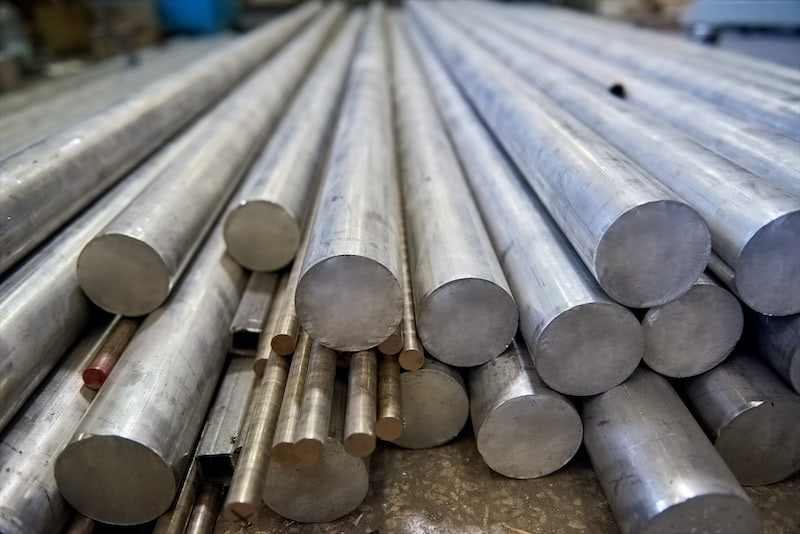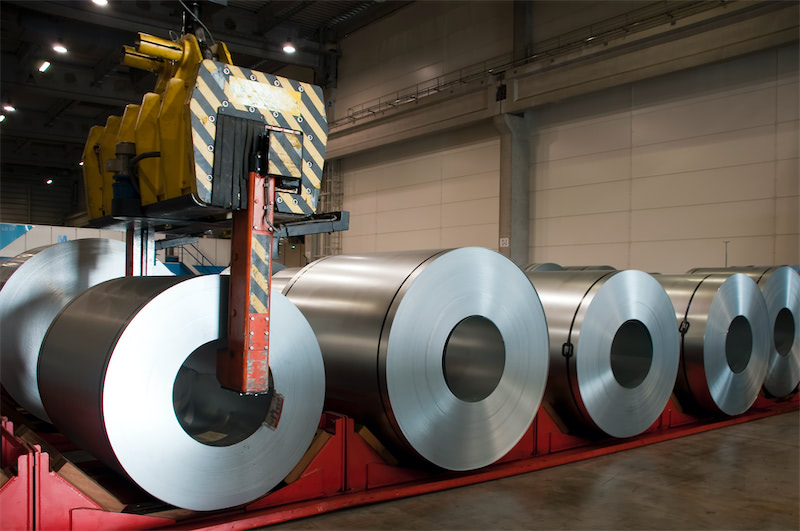Domestic Ore:
In west Liaoning, the prices of domestic iron ore concentrates fell by 5-10 yuan/mt, with the current ex-factory price (66% grade, wet basis, tax excluded) at 705-710 yuan/mt. Recently, the market transaction sentiment has been weak. The cost-effectiveness of domestic iron ore concentrates has weakened, leading steel mills to adopt a cautious approach in procurement. Some steel mills have reduced the proportion of domestic iron ore concentrates used. Mines and beneficiation plants are mostly selling at market prices, but overall sales have been sluggish, with a strong wait-and-see sentiment in the market. Considering the recent weak performance of iron ore futures, it is expected that there will still be some downward pressure on local iron ore concentrate prices in the short term.
Imported Ore:
Yesterday, DCE iron ore futures fluctuated, with the most-traded I2509 contract closing at 698.5, unchanged from the previous day's closing price, and a daily decline of 0.14%. Traders are selling normally, while steel mills are inquiring cautiously and purchasing as needed. The market transaction sentiment is average. The mainstream transaction prices of PB fines in Shandong are at 735 yuan/mt, basically unchanged from the previous day's price. The transaction prices of PB fines in Tangshan are around 745-750 yuan/mt, also basically unchanged from the previous day's price.
According to the SMM survey, on May 28, the operating rate of blast furnaces at 242 steel mills surveyed by SMM was 88.35%, down 0.06 percentage points MoM. The daily average pig iron production of the sampled steel mills was 2.4213 million mt, down 0.9 million mt MoM. Recently, some steel mills have reported that due to the decline in end-use demand and falling finished steel prices, they have incurred losses and plan to formulate maintenance plans after the Dragon Boat Festival. It is expected that blast furnace maintenance plans will gradually increase in June. In addition, there have been frequent reports in the market about crude steel production cuts, which are all bearish for iron ore. However, the current decline in pig iron production is relatively narrow, and port inventory continues to destock, providing support for iron ore prices from the demand side. It is expected that iron ore prices will continue to fluctuate downward in the short term.
Coking Coal Market:
The quoted price of low-sulphur coking coal in Linfen is 1,230 yuan/mt. The quoted price of low-sulphur coking coal in Tangshan is 1,280 yuan/mt.
In terms of fundamentals, most coal mines are maintaining normal production rhythms, and the supply situation remains loose. However, downstream buyers are adopting a cautious wait-and-see attitude, and online auction transactions are poor. Even with price reductions, order signing remains unoptimistic, leading to an accumulation of coking coal inventory at coal mines. In summary, after the second round of coking coal price cuts, coking coal prices will continue to be weak in the short term.
Coke Market:
The nationwide average price of first-grade metallurgical coke (dry quenching) is 1,570 yuan/mt. The nationwide average price of quasi-first-grade metallurgical coke (dry quenching) is 1,430 yuan/mt. The nationwide average price of first-grade metallurgical coke (wet quenching) is 1,240 yuan/mt. The nationwide average price of quasi-first-grade metallurgical coke (wet quenching) is 1,150 yuan/mt.
In terms of supply, after the second round of coke price cuts, most coking enterprises are incurring losses, but these are still within an acceptable range. Production remains temporarily stable, and coke supply is relatively loose. In terms of demand, there has been a seasonal decline in steel demand. Pig iron production has peaked and is pulling back. The crude steel production cut policy has not yet been implemented, making it difficult to offset the impact of weak market conditions. Additionally, most steel mills' coke inventory levels are in the medium to high range, weakening their rigid demand for coke. In summary, after the second round of coke price cuts, the market still has bearish sentiment, and the coke market will continue to be in the doldrums in the short term.
Rebar
Today, rebar futures fluctuated downward, closing at 2,964, down 0.77% from the previous trading day. In terms of spot prices, spot quotes in most regions have remained stable, with only a few regions seeing price declines of around 10-20 yuan/mt. Trading volume improved slightly compared to yesterday, mainly driven by low-priced resources. From a fundamental perspective, on the supply side, according to the SMM survey, due to the significant decline in finished steel prices in recent days, the economic benefits of electric furnace steel mills have declined on a weekly basis, leading multiple steel mills to reduce their operating hours. However, due to the planned production resumption of one electric furnace steel mill, the national electric furnace operating rate this week was 39.14%, up 0.68 percentage points WoW. Blast furnace steel mills, with still existing profit margins, maintain strong production enthusiasm, and overall supply pressure remains high. On the demand side, construction material demand is currently in the transition phase between the "off-season and peak season," with insufficient demand resilience. Market purchases are mainly driven by rigid demand. Overall, the current supply-demand imbalance is intensifying, and market sentiment is unlikely to improve. It is expected that spot prices of construction materials will consolidate in the short term.
HRC
Yesterday, the HRC futures market was in the doldrums, with a daily decline of 0.55% and closing at 3,100. Spot prices fell slightly, with a decline of 10-20 yuan/mt. The futures market fluctuated, with market confidence remaining insufficient. Trading sentiment was moderately weak, and HRC transactions were sluggish. From a fundamental perspective, HRC is still in a situation of weak supply and demand. According to the HRC regional inventory data released by SMM during the day, inventory buildup has begun in areas such as Lecong, Ningbo, and Shenyang. Destocking in Zhangjiagang is still moderate, while the decline in Shanghai has significantly narrowed. The SMM downstream PMI briefing for this month has been released, with the composite PMI for May 2025 at 49.81, down 0.48 MoM and 0.27 YoY. After seasonal adjustment, the composite PMI is 48.94, down 0.14 MoM and 0.05 YoY. The pace of production and construction has slowed down, and overall steel demand is performing poorly. In summary, it is expected that HRC prices will continue to be weak in the short term.
![Before the holiday, the black chain is unlikely to see a trend-driven market [SMM Steel Industry Chain Weekly Report].](https://imgqn.smm.cn/usercenter/zUFfM20251217171748.jpg)

![[SMM Chromium Daily Review] Inquiries and Transactions Weakened, Chromium Market Showed Mediocre Performance Before the Holiday](https://imgqn.smm.cn/usercenter/ENDOs20251217171718.jpg)
